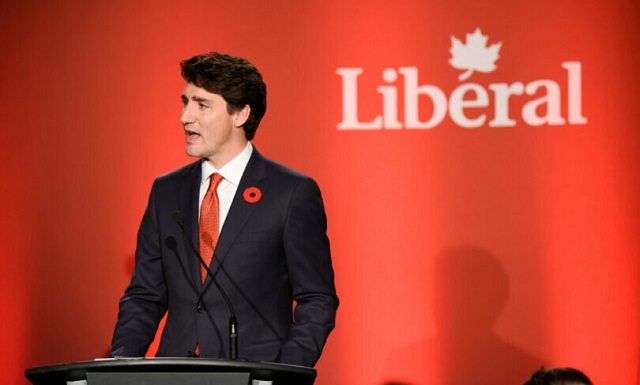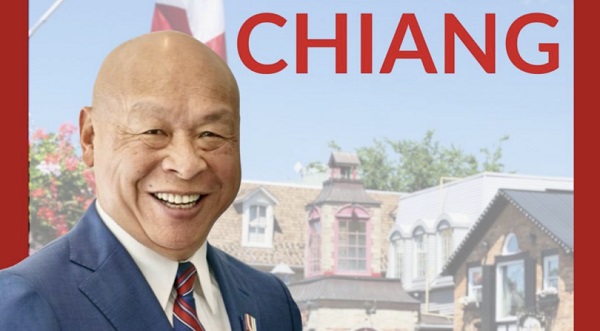National
Anger towards Trudeau government reaches new high among Canadians: poll

From LifeSiteNews
A recent Nanos research survey found that ‘Pessimism and anger remain the top emotions Canadians say best describe their views of the federal government in Ottawa.’
Canadians’ anger towards Prime Minister Justin Trudeau and his Liberal government has reached a record high, according to a new poll.
According to a national survey published by Nanos Research this month, 31% of Canadians feel anger and pessimism towards the Trudeau government, which marks an all-time low in satisfaction for government leadership.
“Which of the following feelings best describes your views of the federal government in Ottawa?” the poll questioned.
In addition to the 31% feeling angry and pessimistic respectively, 11% feel uninterested, while only 1% and 10% feel satisfaction and optimism, respectively. 6% were unsure of their feelings towards the Trudeau government.
“Feelings of anger toward the federal government have increased or held steady in every region, with the largest increases among residents of Quebec (December: 12%; March: 24%) and Atlantic Canada (December: 21%; March: 38%). Pessimism and anger remain the top emotions Canadians say best describe their views of the federal government in Ottawa,” the research found.
In recent months, Trudeau’s popularity has plummeted, with polls projecting a massive Conservative victory in the upcoming election.
Trudeau’s popularity has been falling and his government has been embroiled in scandal after scandal, one of the latest being a federal court ruling that the prime minister’s use of the Emergencies Act to end the 2022 Freedom Convoy was “not justified.”
Even top Liberal party stalwarts have called for him to resign.
Indeed, Canadians anger and dissatisfaction with Trudeau has become a topic of conversation on many social media platforms, with Canadians detailing how the Trudeau government has made their life less affordable.
Numerous videos are being uploaded to social media by Canadians explaining that they struggling to make ends meet amid the rising cost of living and Trudeau’s ever-increasing carbon tax, while many immigrants are telling others not to come to Canada.
2025 Federal Election
‘I’m Cautiously Optimistic’: Doug Ford Strongly Recommends Canada ‘Not To Retaliate’ Against Trump’s Tariffs


From the Daily Caller News Foundation
By Jason Cohen
Ontario Premier Doug Ford urged Canadian Prime Minister Mark Carney to avoid retaliation against the tariffs President Donald Trump announced on Wednesday.
Trump announced in the White House Rose Garden that he would impose “a minimum baseline tariff of 10%” on all goods entering the United States, with Canada not being included on the list of countries with higher rates. When asked about what Canada’s response would be on “Bloomberg: Balance of Power,” Ford said he was “cautiously optimistic” about Canada’s omission from the higher-tier tariffs and emphasized the importance of a cooperative relationship with the U.S.
WATCH:
“Well, let’s see where these tariffs go. I’m cautiously optimistic that I never saw Canada or Mexico on that list. And it just goes to show you two great countries working together, collaborating together and building relationships,” Ford said. “So again, I’m cautiously optimistic. I think if that’s the case, it’s the right thing for both the U.S and Canada.”
Host Kailey Leinz noted that there are currently tariffs on Canada in place as well as an exemption for goods that are in compliance with the U.S.-Mexico-Canada Agreement (USMCA).
“Does that mean, sir, at least in your mind, that it wouldn’t be appropriate for Canada to retaliate for this at this time?” Leinz asked.
“That is correct. If that’s the case, then I would highly recommend to the prime minister not to retaliate. And let’s carry on a strong relationship,” Ford answered. “Let’s build the American-Canadian fortress around both countries and be the wealthiest, most prosperous, safest two countries in the world.”
Trump declared a national emergency to levy a slew of reciprocal tariffs on what he has deemed “Liberation Day.”
“My fellow Americans, this is Liberation Day, April 2, 2025, will forever be remembered as the day American industry was reborn, the day America’s destiny was reclaimed, and the day that we began to make America wealthy again,” Trump said.
The president also announced that he would proceed with implementing a 25% tariff on “all foreign-made automobiles” that will take effect at midnight.
Ford in March had imposed a 25% surcharge on electricity to New York, Michigan and Minnesota, but promptly rescinded the policy and apologized to Americans on WABC’s “Cats & Cosby” radio show the following day. The tariffs were a retaliatory measure against Trump’s flurry of tariffs against Canada since starting his second term.
2025 Federal Election
Liberal MP resigns after promoting Chinese government bounty on Conservative rival

From LifeSiteNews
“I find it incredible that Mark Carney would allow someone to run for his party that called for a Canadian citizen to be handed over to a foreign government on a bounty,” he said at a recent rally. “What does that say about whether Mark Carney would protect Canadians?”
Liberal MP candidate Paul Chiang has dropped out of the running after being exposed for suggesting Canadians turn in a Conservative Party candidate to the Chinese consulate to collect a bounty placed on the man by the communist regime.
In an March 31 statement, Chiang, the Liberal candidate for the Markham-Unionville riding, announced his departure from the race after a video of him suggesting a bounty could be claimed for Conservative candidate Joe Tay by handing him over to Chinese authorities circulated on social media. The Royal Canadian Mounted Police have announced they are “probing” the comments.
“I am proud of what we have achieved together and I remain deeply grateful for the trust placed in me,” he said. “This is a uniquely important election with so much at stake for Canadians. As the Prime Minister and Team Canada work to stand up to President Trump and protect our economy, I do not want any distractions in this critical moment.”
“That’s why I’m standing aside as our 2025 candidate in our community of Markham-Unionville,” he announced.
Chiang’s resignation follows backlash from Conservatives and Canadians alike when a January video from a news conference with Chinese-language media in Toronto resurfaced.
In the video, Chiang jokingly suggested that Tay, his then-Conservative rival for the Markham–Unionville riding, could be turned over to the Chinese Consulate General in Toronto in return for $1-million Hong Kong dollar bounty, about $183,000 CAD.
Conservative Party leader Pierre Poilievre was quick to call out Chiang’s suggestion and blasted Prime Minister Mark Carney for keeping him on the ballot.
“I find it incredible that Mark Carney would allow someone to run for his party that called for a Canadian citizen to be handed over to a foreign government on a bounty,” he said at a recent rally. “What does that say about whether Mark Carney would protect Canadians?”
Chiang has since apologized for his suggestion on both social media and personally to Tay.
“Today, I spoke with Joseph Tay, the Conservative candidate for Don Valley North, to personally apologize for the comments that I made this past January,” he wrote in a March 30 X post.
“It was a terrible lapse of judgement. I recognize the severity of the statement and I am deeply disappointed in myself,” he continued.
Carney has said remarkably little regarding the situation. First, he refused to fire the Liberal candidate, referring to Chiang’s statement as a “terrible lapse of judgment.”
“He’s made his apology. He’s made it to the public, he’s made it to the individual concerned, he’s made it directly to me, and he’s going to continue with his candidacy,” Carney said. “He has my confidence.”
Then, following the announcement of Chaing’s resignation, Carney told reporters that it was time to “move on” and that he would “leave it at that.”
-

 Daily Caller2 days ago
Daily Caller2 days agoBiden Administration Was Secretly More Involved In Ukraine Than It Let On, Investigation Reveals
-

 Business2 days ago
Business2 days agoTrump says ‘nicer,’ ‘kinder’ tariffs will generate federal revenue
-

 2025 Federal Election2 days ago
2025 Federal Election2 days agoPoilievre, Conservatives receive election endorsement from large Canadian trade union
-

 Business2 days ago
Business2 days agoBiden’s Greenhouse Gas ‘Greendoggle’ Slush Fund Is Unraveling
-

 2025 Federal Election2 days ago
2025 Federal Election2 days agoPM Carney’s Candidate Paul Chiang Steps Down After RCMP Confirms Probe Into “Bounty” Comments
-

 2025 Federal Election2 days ago
2025 Federal Election2 days agoRCMP Confirms It Is ‘Looking Into’ Alleged Foreign Threat Following Liberal Candidate Paul Chiang Comments
-

 2025 Federal Election2 days ago
2025 Federal Election2 days agoLiberal MP Paul Chiang Resigns Without Naming the Real Threat—The CCP
-

 2025 Federal Election4 hours ago
2025 Federal Election4 hours agoWEF video shows Mark Carney pushing financial ‘revolution’ based on ‘net zero’ goals







